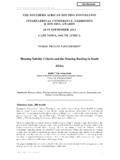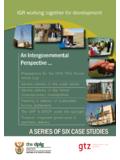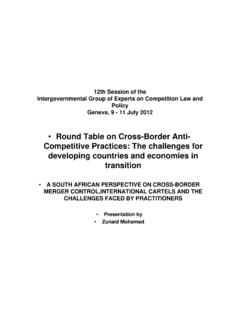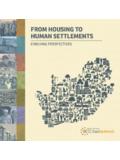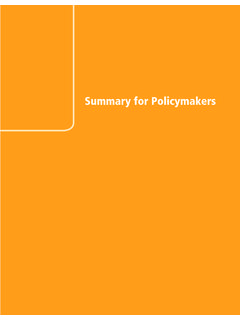Transcription of Intergovernmental relations and housing policy ...
1 1 THE SHOUTH AFRICAN housing FOUNDATION INTERNATIONAL CONFERENC, EXHIBITION & housing AWARDS 18-19 SEPTEMBER 2013 CAPE TOWN, south africa PUBLIC PRIVATE PARTNERSHIPS Intergovernmental relations and housing policy implementation in south africa Kedibone Phago Turfloop Graduate School of Leadership University of Limpopo 27(0)15 290 2842 Key words: Intergovernmental relation, housing policy , policy implementation, service delivery, human settlements Abstract housing policy in south africa requires that government departments at the different spheres should be able to coordinate their activities to facilitate a realisation of housing provision.
2 This coordination is imperative because without such, effective housing provision remains threatened. The question that this paper raises is: whither Intergovernmental relations for housing policy implementation in south africa ? This question is raised in this paper because a system that ties activities of different spheres of government is necessary to realise housing policy implementation outcomes. In responding to this question several issues receive attention: Firstly, Intergovernmental relations and housing which considers the nature of IGR system in place, while arguing that this system is not viable for housing delivery.
3 Secondly, while the municipal accreditation system has been introduced, it remains complex and costly in addressing housing delivery challenges. In the final analysis, this paper argues for a constitutional amendment which would allow housing to become a functional competency of municipalities similar to other basic municipal services such as electricity, sanitation and clean cleaning drinking. Introduction A discussion of Intergovernmental relations in south africa is topical and relevant especially in the domain of housing policy and human settlements. In this domain, different actors are considered to ensure that liveable conditions for the low income communities are made for the improvement of their wellbeing.
4 This paper undertakes to consider how an Intergovernmental relation is understood in south africa within the context of housing . This consideration seeks to highlight key challenges inherent in the current IGR system within housing . Further, a discussion on the accreditation system and its impediments to the 2 improvement of housing conditions are observed. In this regard, a final analysis is made on the relevant issues to ensure that a viable IGR model which considers issues of policy and strategy and not of policy implementation is sought. Intergovernmental relations and housing The National Council of Provinces1 (NCOP), has also compiled a list of questions that resonate with Intergovernmental relations issues and institutional administrative framework.
5 These questions were compiled for the different ministers of the Social Services and Governance Cluster which include then National Department of housing . Questions on housing also relate directly to the capacity of the National Department of housing in carrying out their administrative mandate. The questions as asked by members of the NCOP include the following (National Council of Provinces, 2008 p. 2-6): Six hundred houses of the 15 000 Zanemvula Human Settlement Project units in the Eastern Cape Province has been certified as faulty and needs to be demolished. What are the administrative and financial ramifications of the process?
6 What are the administrative measures in place to recoup the funds lost from demolishing these 600 units? Whether there is coordination between various government departments of housing and entities with regard to the allocation of housing units to relevant beneficiaries? Whether the Minister is aware of the different lists between certain provinces and their municipalities regarding housing waiting lists? This question is of concern as other beneficiaries receive stand numbers of the house they should occupy while after completion houses are occupied by different households. Whether the Department has any plans in place to correct the recurrence of the Free State Province s recurrence under spending of R82,2 million of the 2007/08 financial year?
7 Whether the Department keeps record of the total number of the reported housing units that are demolished or rebuilt as a result of poor building materials and shoddy contractors? Whether the Department is putting preventative measure administratively to avoid poor building materials and shoddy work by contractors? What is the current situation regarding the performance audit by the office of the Auditor-General on RDP housing projects? Whether the Department has ensured that contractors have been prosecuted for the shoddy work and for non-completion of contracts? These questions have direct relevance on how Intergovernmental relations activities should be facilitated in addressing housing challenges.
8 In the main, the questions highlight practical and operational challenges which need coordination from all the three spheres of government. The importance of these questions also lies on the fact that they were raised with the Minister of housing by the Members of Parliament who represent their constituencies (ordinary 1 The national Council of Provinces is the second house of Parliament with the National Assembly as the first. It represents provinces to ensure that provincial interests are taken into account in the national sphere of government. 3 citizens) and the interest of the provinces at the national sphere of government.
9 The nature of these questions also seeks to determine checks and balances of housing Intergovernmental relations system in south africa . In this regard, the promulgation of the Intergovernmental relations Framework Act 13 of 2005 has been a positive advancement of an administrative arrangement in coordinating the activities of the three spheres of government. There are numerous focal points in which this Act is attempting to address in strengthening aspects relating to Intergovernmental relations which have some relevance to housing namely: Intergovernmental structures which include President s coordinating council, national Intergovernmental forums, MinMec, municipal Intergovernmental forums.
10 Conduct of Intergovernmental relations . Settlement of Intergovernmental disputes. Other important matters relating to Intergovernmental relations such as reporting to parliament. Malan (2005: 241) has identified two important deficiencies of Intergovernmental relations despite the implementation of the Intergovernmental relations Framework Act 13 of 2005. The first one is that there are always a variety of processes and structures existing whose roles and relationships are mostly uncertain. In housing , the legislation makes provision for provinces to undertake the responsibilities of managing public housing provisions, while municipalities are just providing information and managing the public housing waiting list.
